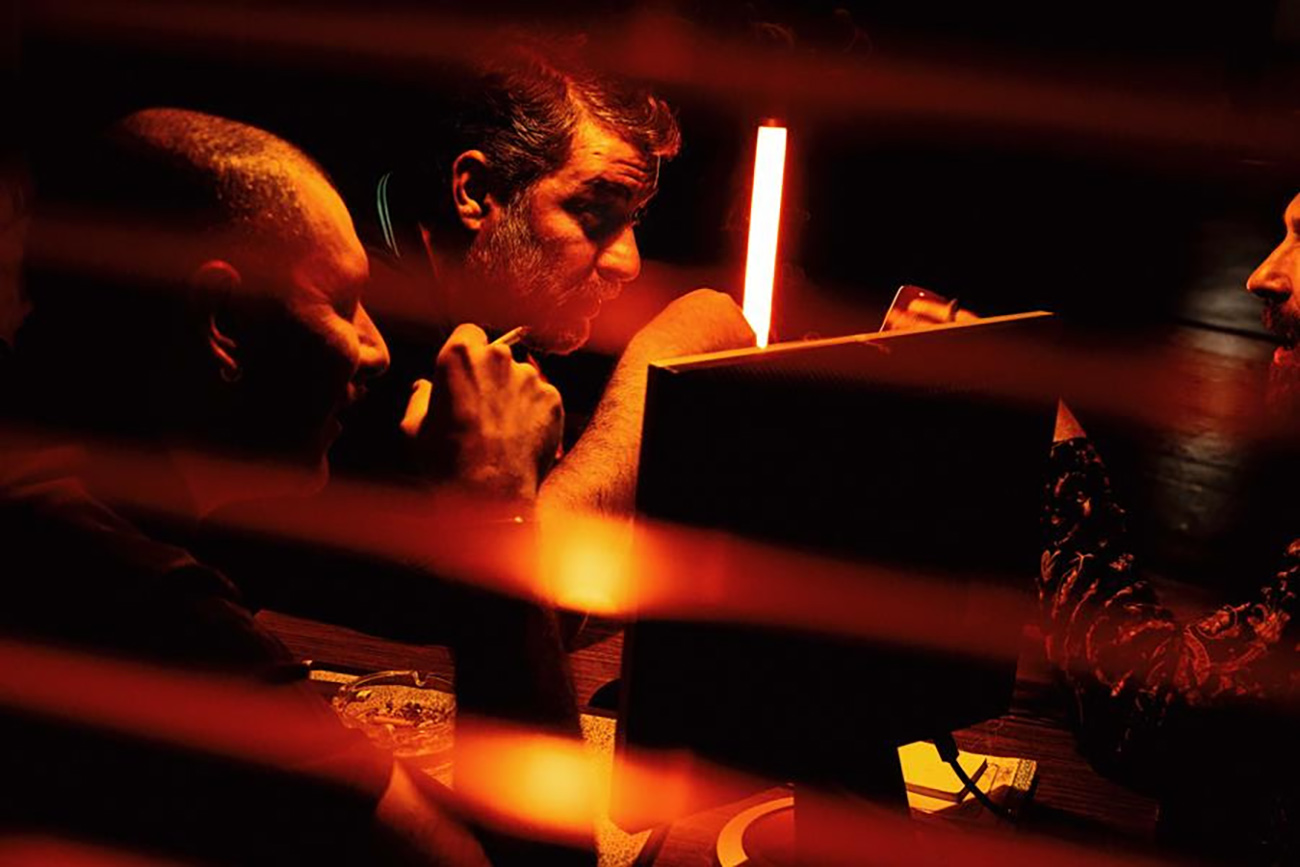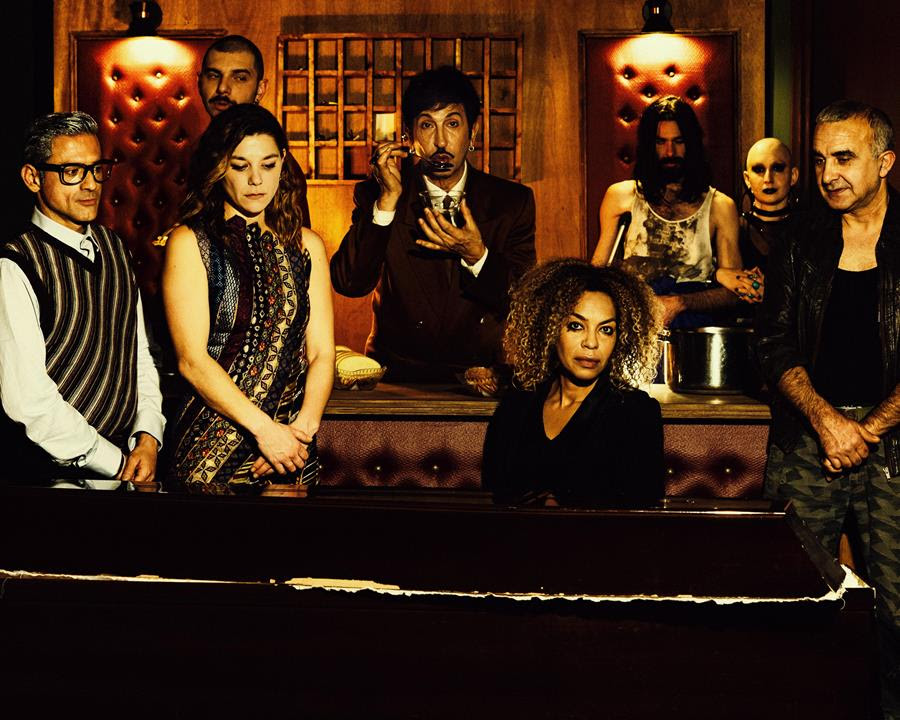
After performances of Men, Mice and Red Lights, Vasilis Besbekis, for the first time on the main stage of Stygi, makes free copies of an allegory by the Russian author, transporting it as a popular noir to the Athens of 2023.
What constitutes a crime and what is the punishment in Athens in 2023? When exactly do you commit a crime? At the moment of the act or at the moment the perpetrator imagines it in his mind? How is the transition from legal to illegal? And what is her punishment? The Kartel group attempts to investigate moral, social, and philosophical questions with a remake of the allegory of 1866, bringing the story, in linear narrative style, to the present, on the streets and neighborhoods of Athens.
From March 22 to April 9, Stegi’s Central Theater welcomes the new Prakolnikov, performed by Thodoris Skyftoulis and, along with the rest of the play’s protagonists, lures us into a journey to the brink of fear. “Life is plainly terrifying” the monologue of “the young man” Raskolnikov who calls him Michalis Schizas, a young man subject to rebellions of heart and mind. Crime and Punishment: Athena brings an ensemble of 20 actors to deliver a hyper-realistic performance of folk noir under the direction of Vassilis Besbekis.
Young law student Rodion Romanovich Raskolnikov takes the law into his own hands and kills an old shark. Along the way he is overcome with guilt, he falls in love with a young prostitute Sonia, is interrogated by the authorities, and encounters his family and various types of darkness who pursue him, tormented by inner demons. How relevant is Fyodor Dostoevsky’s masterpiece today?
And what reductions can be made to date? Filming live events, games, and YouTube channels are included in this edition, as cameras peer into the most unlikely places to reveal the deep thoughts of the protagonists at the forefront and expose the webs of their secret lives, turning our gaze to the unseen lives of the protagonists. Objects and highlighting morality and irony, darkness and light, the inner struggle between reason and emotion, oxidative regret and deep kindness.
Dostoevsky himself says in a letter he sent in 1865 to the editor of The Russian Messenger, trying to persuade him to publish the novel in his journal: “A novel is a psychological account of a crime. A young middle-class student living in extreme poverty is expelled from the university. Beneath the superficial and feeble ideas , influenced by some “unfinished” thoughts floating in the air, decides to quickly get out of the predicament in which he finds himself by killing an old woman, a usurer and the widow of a civil servant. […] After the act, the psychological process of the crime unfolds.

quests can not be released as a killer; Feelings he had not expected or suspected, tormented his heart. Divine right and earthly law call him to pay the price, and he finally feels obligated to surrender. He feels this obligation, even if it means that he may die in prison, to feel again a member of human society. The feeling of separation and alienation from humanity, nature, and the law of truth comes at a price.”
In Crime and Punishment: Athens, Dostoevsky’s world meets the modern Western world on the stage, at a time when the latter seems to be changing dramatically and straying into another version – better or worse, no one yet knows – who.
Whatever his next version, these questions will remain alive and relevant. Because it is directly related to human nature. Like the words that slip off the lips of the main character’s lover: “Would you forget everything and live happily? What weighs you down is inside you. No matter how far you go, you will carry it with you. Peace is like love that cannot be bought.”
transactions
Adapted from the novel of the same name by Fyodor Dostoyevsky
Directed by: Vasilis Besbekis
Original versions and dramas: Vasilis Besbekis, Yannis Melitopoulos
Stages: Kenny McClellan
Costumes: Giorgos Sigridakis
Kinesiology Editor: Edgen Lame
Lighting design: Sakis Perbilis
Associate Director: Dionysis Kokkotakis
Assistant stage designer: Kalydimi Mourtzis
Cinematography: Philippos Zamidis
Cartel Group Production Execution: Faye Tzima
Distribution (in alphabetical order): Lefteris Agouridas (Anestis Panousis), Betty Vakalidou (Alina Ioannou), Tsesaris Grauzinis (Zacharias Marmeladov), Yanmaz Erdal (Ergatis), Manos Kazamias (Petros Loutzis), Dionysis, Kokostgenotakis (Petros Loutzis) (Wingid Mercury), Anna Macha (mother), Erika Bejo (Sonia Marmilandova), Vasilis Besbekis (Porphyris Petridis), Dimitris Papazoglou (Maricon), Phoebus Papakostas (Grigoris), Natasha Papandreou (Iero Eni), Giorgos Sideris (Elias), Theodoris Skiftolis (Mihalis Chezas), Stelios Tyriakidis (Dimitris), Kostas Valilakis (Arkadis Boniridis), Ioffi Fragato (Dina Cheza), Nicoletta Sharatzoglou (Natasa)
Translation of subtitles into English: Mimi Katsoni
overtitling simultaneously: Yannis Papadakis
Production: Roof of the Onassis Foundation
Suitable: 16+
Presentations with English subtitles
Saturday 25.3, Sunday 26.3, Thursday 30.3, Friday 31.3, Saturday 1.4, Sunday 2.4, Saturday 8.4, Sunday 9.4.2023

. “Certified social media geek. Passionate webaholic. Unapologetic music specialist. Food ninja.”





More Stories
Monica Bellucci and Tim Burton are more in love than ever at the Venice Film Festival – melting for each other
It hurt me as much as it hurt us all.
Marios Athanasiou Shocked: ‘Tighter Penalties for Rape and…’ | Celebrity News